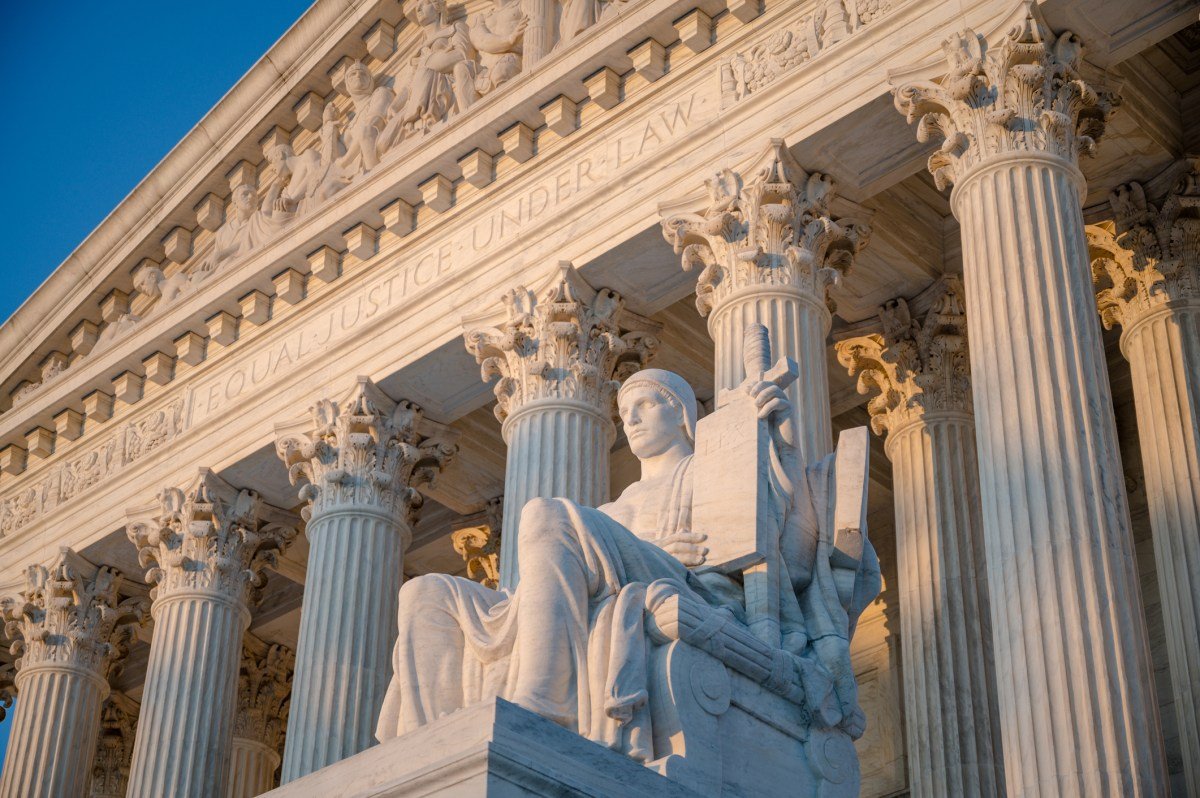The fate of content moderation lies in the hands of the Supreme Court – or does it? The justices are currently deliberating on the constitutional validity of two state laws that seek to restrict social media companies from moderating content on their platforms.
During oral arguments on Monday, the Supreme Court grappled with some difficult questions that could significantly alter the landscape of the internet, affecting popular social networks such as Facebook and TikTok, as well as apps like Yelp and Etsy.
Back in October, the Supreme Court decided to take on two parallel cases: Moody v. NetChoice, LLC in Florida and NetChoice, LLC v. Paxton in Texas. These cases, both signed into law by Republican governors, involved new state laws that prohibit social media companies from removing certain types of content.
In Florida, Senate Bill 7072 aims to prevent social media companies from banning political candidates or placing limitations on their content. In Texas, House Bill 20 prohibits social media companies from removing or demonetizing content based on the user’s viewpoint. While a federal appeals court mostly ruled in favor of tech companies in the Florida case, their decision was challenged in the Texas case where the appeals court sided with the state.
The Republican lawmakers behind these laws have cited the perceived anti-conservative bias of social media companies as the reason for their creation. However, research has not supported these accusations, and it is worth noting that conservative social media users are more likely to encounter political misinformation, which might explain the perception of a bias in content moderation decisions.
With these two laws now tangled in a web of outdated legal precedents, the Supreme Court has a lot to consider. These rulings were made long before popular terms such as “tweet” and “livestream” existed, highlighting the need for modernized laws to govern the internet. Both tech companies and their critics are in desperate need for clarity on this matter, but as the Supreme Court demonstrated last year with different social media cases, they might not get the clarity they desire.
During Monday’s hearing, justices from both political spectrums expressed skepticism towards these state laws. Justice Sonia Sotomayor described the cases as “odd” and cautioned that they could have unforeseen consequences.
“It seems like your law is covering just about every social media platform on the Internet, and we have amici who are not traditional social media platforms, like smartphones and others who have submitted amici briefs, telling them that readings of this law could cover them,” Sotomayor said, referencing the Florida law.
“This is so, so broad, it’s covering almost everything. But the one thing I know about the Internet is that its variety is infinite.” Sotomayor pointed to the online marketplace Etsy as a less obvious example of a website that could be negatively impacted by state laws designed to dictate what social media companies can do.
Justice Brett Kavanaugh also brought up the First Amendment during the arguments, but not in a way that supported the state’s argument.
“You said the design of the First Amendment is to prevent ‘suppression of speech,'” Kavanaugh said. “And you left out what I understand to be three key words in the First Amendment or to describe the First Amendment, ‘by the government.’
Even Justice Neil Gorsuch, who seemed more sympathetic to arguments against social networks, mentioned Section 230 – a longstanding law that protects content moderation decisions – and suggested that it could “preempt” the state’s attempts to limit social media moderation. Not all of the justices appeared to side with the tech industry, with Justices Clarence Thomas and Samuel Alito leaning towards the states’ arguments.
Overall, Monday’s hearing provided some insight into the majority’s opinion on the issue, but there is still a chance that nothing will come out of it. A few of the justices, including Sotomayor, Gorsuch, Barrett, and Thomas, expressed doubts about the way the cases were brought to the court in the first place.
Paul Barrett, an adjunct law professor at NYU and Deputy Director of NYU Stern’s Center for Business and Human Rights, explains that the issue at hand is what is known as a “facial challenge.” In these types of cases, industry trade groups challenge a law even before it goes into effect, arguing that it is unconstitutional based solely on its written text. This means that there is a lack of evidence and testimony that would typically be presented in a trial to show how the law affects parties involved.
Barrett says that this lack of evidence could lead to the Supreme Court declining to rule on the cases and instead, sending them back to lower courts for a full trial, which could take years. However, the court has the option to issue a decisive ruling at any point before their term ends in June.
“Supreme Court cases can fizzle in this way, much to the frustration in most cases to other parties,” Barrett notes.
Ultimately, the Supreme Court will have to confront the realities of the internet age sooner or later. Many of the legal precedents that exist today deal with traditional mediums such as cable TV, newspapers and utilities, not the internet companies that have millions, sometimes even billions, of users.
“It’s clear that the Supreme Court needs to update its First Amendment jurisprudence to take into account this vast technological change,” Barrett says. “The Supreme Court often lags behind society in dealing with these kinds of things, and now it’s time to deal with it.”








